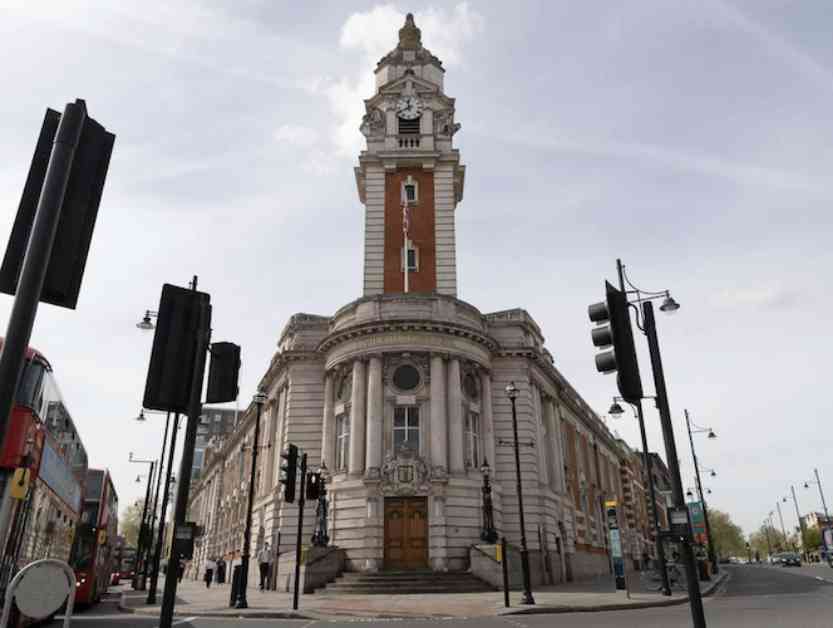London is facing a severe housing crisis that is not only affecting the lives of its residents but also putting immense pressure on the budgets of local authorities. According to new figures released by the cross-party London Councils group, the cost of temporary accommodation for homeless households in the city is skyrocketing, posing a significant threat to borough budgets.
The statistics paint a grim picture of the situation in London, with one in 50 residents now living in temporary accommodation provided by local authorities. This has resulted in a staggering daily cost of £3 million for the city’s councils. The number of homeless London households living in temporary accommodation arranged by their local authority has seen a worrying 10 per cent increase over the past year, bringing the total to 60,959 households – impacting more than 175,000 individual Londoners, including one in 23 children.
The rising demand for temporary accommodation, coupled with a shortage of affordable housing options, has forced boroughs to resort to more expensive alternatives like commercial hotels to meet their statutory homelessness obligations. As a result, costs have surged by almost 40 per cent in the span of just 12 months, putting immense strain on council budgets as a whole.
“The housing crisis is having a devastating impact on Londoners’ lives and wreaking havoc on town hall finances across the capital,” stated London Councils chair Claire Holland, who also leads Lambeth Council. She emphasized that the spiraling costs and years of underfunding are pushing borough budgets to the brink of collapse.
The financial implications of the housing crisis are dire, with boroughs collectively forecasting an overall funding gap exceeding £600 million for the current year, which is expected to rise to £700 million by 2025/26. In light of these challenges, London Councils are urgently calling on Chancellor Rachel Reeves for an immediate injection of extra cash in her upcoming budget on 30th October.
Several boroughs, including Croydon, Lambeth, and Hillingdon, are already reliant on emergency financial support from Whitehall, with some edging closer towards effective bankruptcy. The group highlights that council resources have dwindled by a fifth since 2010/11, while the demand for services continues to rise. To bridge the financial gap, an urgent seven per cent revenue spending hike is deemed necessary.
Subheadings:
The Urgent Need for Additional Funding
Pressing Financial Challenges Faced by London Boroughs
Call for Government Intervention to Alleviate Housing Crisis
London Councils are advocating for the removal of the government cap on Local Housing Allowance levels to address the significant restrictions on housing benefit in the capital. Additionally, extending Whitehall funding to support rough sleepers for another year is crucial to prevent a “cliff-edge” in service provision for street homelessness.
In addition to the immediate funding requirements, there are concerns about the sustainability of boroughs’ housing revenue accounts. These ring-fenced budgets, funded by rental income, are utilized to manage and maintain existing council homes and finance new ones for social rent. However, increasing costs and declining income are exerting pressure on these accounts, prompting boroughs to anticipate £170 million in cuts to housing budgets over the next four years.
The escalating inflation, repair and building costs, along with additional fire safety and regulatory requirements, have compounded the financial challenges faced by boroughs. The restrictions on social rent levels imposed by the government have further exacerbated the situation, prompting boroughs to focus only on urgent repairs and delay much-needed improvements.
London Councils stress the urgent need for a new capital funding deal with the government to secure more resources for affordable homes and establish a long-term agreement on rent levels. This aligns with the recommendations of a broader cross-party council coalition spearheaded by Southwark Council, which recently warned of a £2.2 billion “black hole” in councils’ housing budgets by 2028.
The report submitted by the coalition calls for a £644 million “emergency” cash injection to stabilize councils’ housing revenue accounts in the short term. It also proposes reforms such as restricting Right to Buy sales of council homes and providing additional funding to enable councils to take over private developments stalled due to market downturns.
Sadiq Khan, the Mayor of London, has introduced a £100 million fund for councils to convert market-rate homes on stalled development sites into affordable housing. He has also advocated for a £2 billion boost in government housing funding to address the pressing need for more affordable homes in the capital.
A recent study by the public sector union UNISON underscores the precarious financial situation facing London councils. It highlights individual borough forecasts, with Croydon facing the largest shortfall of £53 million, followed by Barnet, Camden, and Newham facing significant financial challenges.
In conclusion, the housing crisis in London is not only a humanitarian issue but also a significant financial burden on local authorities. Urgent government intervention is needed to address the escalating costs of temporary accommodation, sustain housing revenue accounts, and provide adequate funding for affordable homes. Failure to act swiftly could have far-reaching implications for both residents and borough budgets in the capital.





















